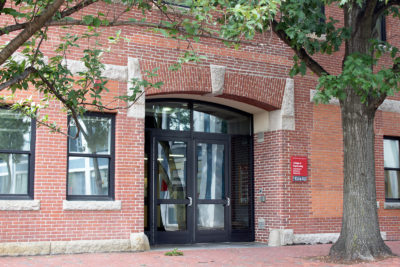
The National Science Foundation awarded Boston University a $20 million, five-year grant last week to establish an Engineering Research Center in hopes of designing and producing personalized heart tissue, according to College of Engineering Dean Kenneth Lutchen.
The center will be based at BU, which will lead the project among partner universities, including the University of Michigan and Florida International University, according to Lutchen. The leadership team will also feature collaborators from Columbia University and Harvard University.
The center’s primary purpose will be to develop potentially life-saving cardiac tissue, according to the center’s head director, David Bishop.
“The nearer-term goal is to create a human heart tissue that can be used for drug testing,” Bishop said. “The longer-term goal is to actually create implantable cardiac tissues you can use to repair a heart that’s damaged because of a heart attack.”
The center will be multifaceted in terms of both its faculty and its goals. The 11-person leadership team will include biomedical engineers, mechanical engineers and experts on materials science. The diversity of skill and knowledge on the leadership team, Bishop said, will contribute to the multidisciplinary nature of the center and to making an effective heart tissue.
“The idea is to create technologies that are ultimately going to be important for the human race to work with industries to commercialize it [and to] help develop a diverse, well-trained workforce,” Bishop said. “We’re really a very complete center that’s going to focus on all elements of creating innovative technologies and getting it into the hands of the people whose lives we ultimately hope to improve.”
One of the most important products that the center will generate, aside from the technology, is a trained workforce, Bishop said.
The center will offer research opportunities and resources for BU students of all majors and inclinations, according to Sarah Hokanson, one of the co-directors of the center’s workforce development core.
“This grant will create research opportunities that will enable [students] to not only work on something high-impact but gain the technical skills that they will need to be successful long-term in their respective disciplines,” Hokanson said. “It will provide a vehicle for them to learn skills that are not necessarily central to any discipline but central across all of them – things like science communication, leadership [and] cultural awareness”
Several BU students said they were happy to hear about the grant because it means that more students will be able to get involved with important research projects.
Luis Olivarez, a ENG freshman, said he believes the center will afford many students valuable educational opportunities.
“It’s a big opportunity because the amount of money they are giving will allow for us to progressively have more flexibility with what we could do with that money,” Olivarez said. “And more importantly, it really opens the path for students in not only [engineering], but also other types of fields.”
Aysia Moroney, a College of Arts and Sciences freshman, said she thinks the research center will benefit both the university and the individuals who take advantage of the opportunities it has to offer.
“It will not only raise the prestige of the school, but it will bring prestige to the engineering program and help a lot of people,” Moroney said. “I have friends studying engineering and I’m sure they will appreciate the grant and the opportunities.”
Kai Perschbacher, a CAS sophomore, said he thinks the establishment of the center at BU is representative of the kind of work that the university strives for.
“BU is constantly trying to push the boundary,” Perschbacher said. “It’s constantly trying to challenge its students and its faculty and I think the research center is doing all that … Any opportunity to create medical information for the greater good is something which BU believes in and is looking forward to strengthening.”






















































































































